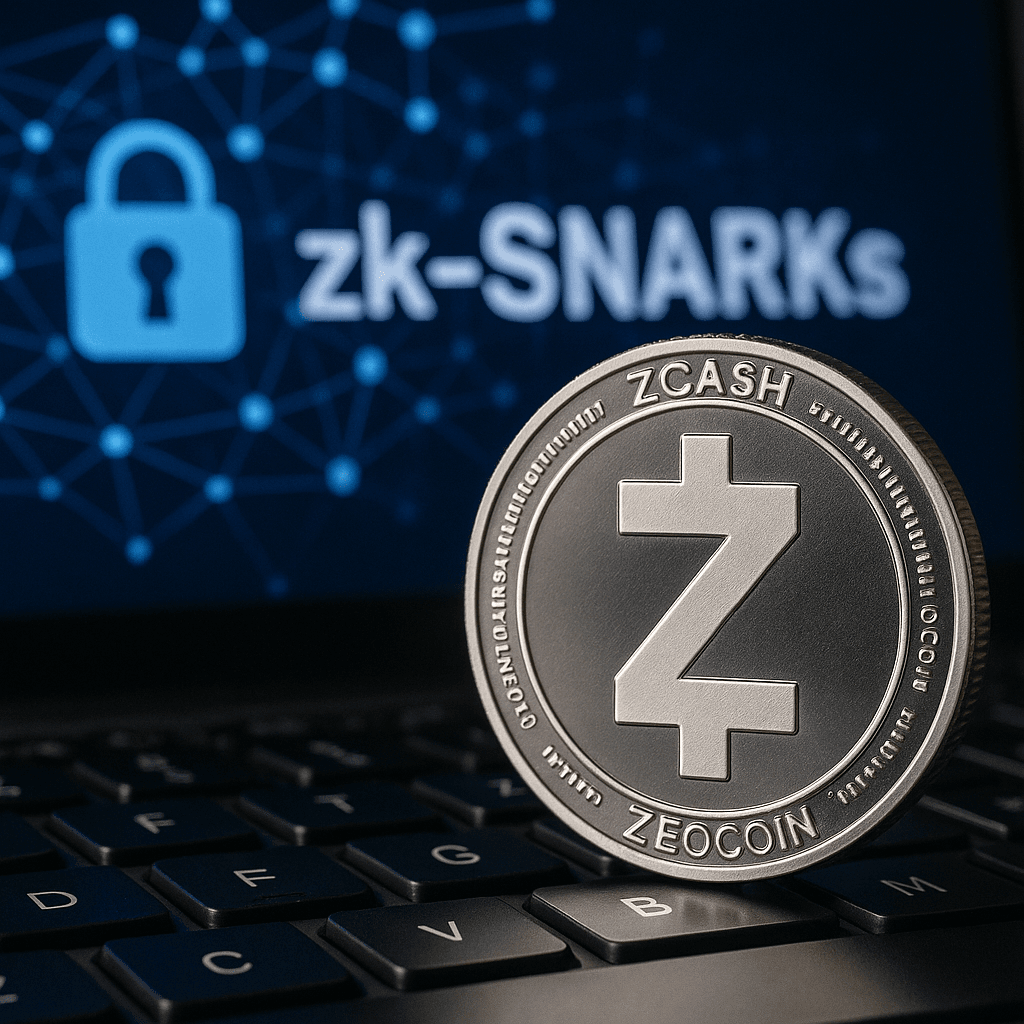Introduction to Privacy in Web 3
As Web 3 grows, with decentralized finance (DeFi) and blockchain applications reshaping financial systems, the demand for user privacy has surged. Public blockchains like Ethereum expose transaction details, making them traceable and raising concerns about surveillance and data exposure. Zcash, a pioneer in privacy-focused cryptocurrencies, has leveraged zero-knowledge proofs (ZKPs), specifically ZK-SNARKs (Zero-Knowledge Succinct Non-Interactive Arguments of Knowledge), to address these issues. In August 2025, Zcash announced a groundbreaking integration of ZK-SNARKs into Aave, a leading DeFi protocol, marking a significant step toward private financial transactions in Web 3. This article explores the integration, its technical mechanics, and its implications for DeFi and the broader Web 3 ecosystem.
Zcash and ZK-SNARKs: A Privacy Powerhouse
Zcash, launched in 2016 by Electric Coin Co., is renowned for its privacy-first approach, using ZK-SNARKs to enable shielded transactions that conceal sender, receiver, and amount details while maintaining blockchain verifiability. ZK-SNARKs allow a prover to demonstrate that a transaction is valid without revealing sensitive data, offering a balance between privacy and transparency.
- How ZK-SNARKs Work: ZK-SNARKs use complex cryptography to generate succinct proofs that transactions adhere to network rules (e.g., no double-spending) without disclosing underlying details. These proofs are verified quickly, ensuring scalability.
- Zcash’s Legacy: Since its inception, Zcash has processed millions of shielded transactions, with the Orchard protocol (introduced in 2022) enhancing efficiency using the Halo 2 proving system, which eliminated the need for a trusted setup.
The Aave-Zcash Integration
In August 2025, Zcash partnered with Aave, a top DeFi protocol for lending and borrowing, to integrate ZK-SNARKs, enabling private transactions within Aave’s ecosystem. This collaboration allows users to lend, borrow, and stake assets with enhanced privacy, addressing a critical gap in DeFi where transaction transparency often exposes financial strategies and user identities.
Key Features of the Integration
- Private Lending and Borrowing: Users can deposit ZEC or other assets into Aave’s liquidity pools using shielded addresses, concealing transaction amounts and wallet details.
- Shielded Flash Loans: Aave’s signature flash loans, used for arbitrage and liquidations, now support ZK-SNARK-based privacy, allowing users to execute complex strategies without revealing their actions.
- Interoperability: The integration leverages Zcash’s cross-chain capabilities, enabling shielded transactions to interact with Ethereum-based assets via bridges like Wormhole.
- Compliance-Friendly: ZK-SNARKs allow selective disclosure, enabling users to prove transaction validity to regulators without exposing full details, aligning with evolving compliance requirements.
Technical Implementation
The integration relies on Aave’s smart contracts, modified to incorporate Zcash’s ZK-SNARK proving system. Key components include:
- Shielded Pool Contracts: Smart contracts on Aave verify ZK-SNARK proofs for deposits and withdrawals, ensuring privacy without compromising Aave’s lending mechanics.
- Orchard Protocol: Zcash’s Halo 2-based Orchard protocol reduces proof generation time, enabling efficient private transactions within Aave’s high-throughput environment.
- Cross-Chain Bridges: Wrapped ZEC (wZEC) is used to bridge Zcash assets to Ethereum, allowing seamless interaction with Aave’s ERC-20 tokens.
Benefits of ZK-SNARKs in DeFi
The Zcash-Aave integration brings significant advantages to Web 3:
- Enhanced User Privacy: Users can lend or borrow without exposing wallet addresses or transaction amounts, protecting financial strategies from competitors or trackers.
- Financial Inclusion: Privacy encourages participation from users in regions with strict regulations or surveillance, broadening DeFi’s reach.
- Scalability: ZK-SNARKs’ succinct proofs minimize computational overhead, ensuring Aave’s performance remains robust.
- Regulatory Alignment: Selective disclosure allows compliance with KYC/AML requirements without compromising user anonymity.
Challenges and Limitations
Despite its promise, the integration faces hurdles:
- Computational Intensity: Generating ZK-SNARK proofs requires significant computational resources, potentially slowing transaction processing for resource-constrained devices.
- Adoption Barriers: Users must understand shielded addresses and ZK-SNARK mechanics, which may deter non-technical participants.
- Regulatory Scrutiny: Privacy-focused tools like ZK-SNARKs face regulatory concerns, as seen with past restrictions on privacy coins in jurisdictions like Japan.
- Integration Complexity: Adapting Aave’s smart contracts for ZK-SNARKs requires rigorous auditing to prevent exploits, increasing development costs.
Impact on the Web 3 Ecosystem
This integration sets a precedent for privacy in DeFi and Web 3:
- DeFi Evolution: Other protocols, such as Compound or Uniswap, may follow suit, integrating ZK-SNARKs to offer private transactions, making privacy a standard feature.
- Cross-Chain Privacy: Zcash’s bridge to Ethereum enables private interactions across blockchains, fostering interoperable, privacy-preserving ecosystems.
- User Empowerment: By shielding financial data, users gain greater control over their privacy, aligning with Web 3’s ethos of self-sovereignty.
- Institutional Interest: The integration aligns with institutional demand for compliant privacy solutions, as seen in projects like Ernst & Young’s Nightfall, potentially attracting traditional finance players to DeFi.
Future Outlook
The Zcash-Aave integration is a milestone in Web 3’s privacy push. Looking ahead:
- Broader Adoption: More DeFi platforms may adopt ZK-SNARKs or zk-STARKs, with projects like Aztec and Railgun already exploring similar integrations.
- Scalability Improvements: Advances in ZK-SNARK efficiency, such as recursive proofs, could reduce computational overhead, making private transactions more accessible.
- Regulatory Clarity: As selective disclosure gains traction, regulators may embrace ZKPs as a way to balance privacy and compliance.
- Web 3 Expansion: Privacy-focused solutions could extend beyond DeFi to gaming, social networks, and identity management, creating a fully private Web 3 ecosystem.
Conclusion
Zcash’s integration of ZK-SNARKs into Aave marks a pivotal moment for Web 3 privacy, enabling users to engage in DeFi with unprecedented anonymity. By leveraging zero-knowledge proofs, this collaboration addresses a critical need for private financial transactions while maintaining blockchain’s transparency and security. Despite challenges like computational complexity and regulatory scrutiny, the integration paves the way for a more private, inclusive Web 3. Developers and users should explore Zcash’s tools and Aave’s updated platform to harness the power of privacy in decentralized finance.




